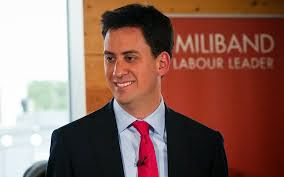And, boy, do we need protection. Right now, for instance, we live under the dreaded peril of the ‘White Widow’.
Isn’t that blood-chilling? For a few months as a teenager, my direct route home took me through a graveyard with a church tower from which, I was assured, many had seen the local ghost, the ‘Grey Lady’, leap. It certainly made the walk home an edgy experience. But what’s a ‘Grey Lady’ to a ‘White Widow’? Particularly as the widow really exists and, as an international terrorist mastermind, she has real weapons to hurt us with.
 |
| Samantha Lewthwaite, the 'White Widow' |
I mean, she’s white after all. Our terrorist bogeymen are supposed to be Middle-Eastern looking – and they’re supposed to be men. A woman, and a white woman at that? Wow. That’s the stuff real nightmares are made of. She’s a traitor, to her race, by Jove, as well as a deadly menace. All she needs is to make poison her weapon of choice to become a latter-day Lucrezia Borgia.
She’s been officially dubbed the ‘world’s most wanted’ by no less prestigious a voice than Britain’s Sun, which speaks with all the authority we’ve come to expect of a tabloid newspaper. Kenya has asked for an international arrest warrant to be issued against her, and Interpol has been happy to oblige, even though there’s no suggestion she was involved in the Westgate Mall attack, or even that she’s in Kenya.
In fact, that’s precisely the odd thing about this business. Not only can we not be sure she’s in Kenya, but nobody seems to know where she is. The phrase regularly used about her is that she’s ‘dropped off the intelligence radar.’
Now isn’t that interesting? Thanks to Assange and Snowden we now know that Britain’s GCHQ and the American NSA can find out pretty well anything they like about pretty much any one of us in pretty well no time. They can quickly establish whether I’ve ordered Jessie Keane’s Black Widow from Amazon, however underwhelming that novel may be, but they can’t locate the ‘White Widow’, though we’re assured she might overwhelm us all.
All that snooping. All that reading of e-mails. All that tracking of internet activity.
Come on, spooks. You tell us you only do it to keep us safe.
Doesn’t the vanishing ‘White Widow’ make it a bit hard to sustain that claim?















